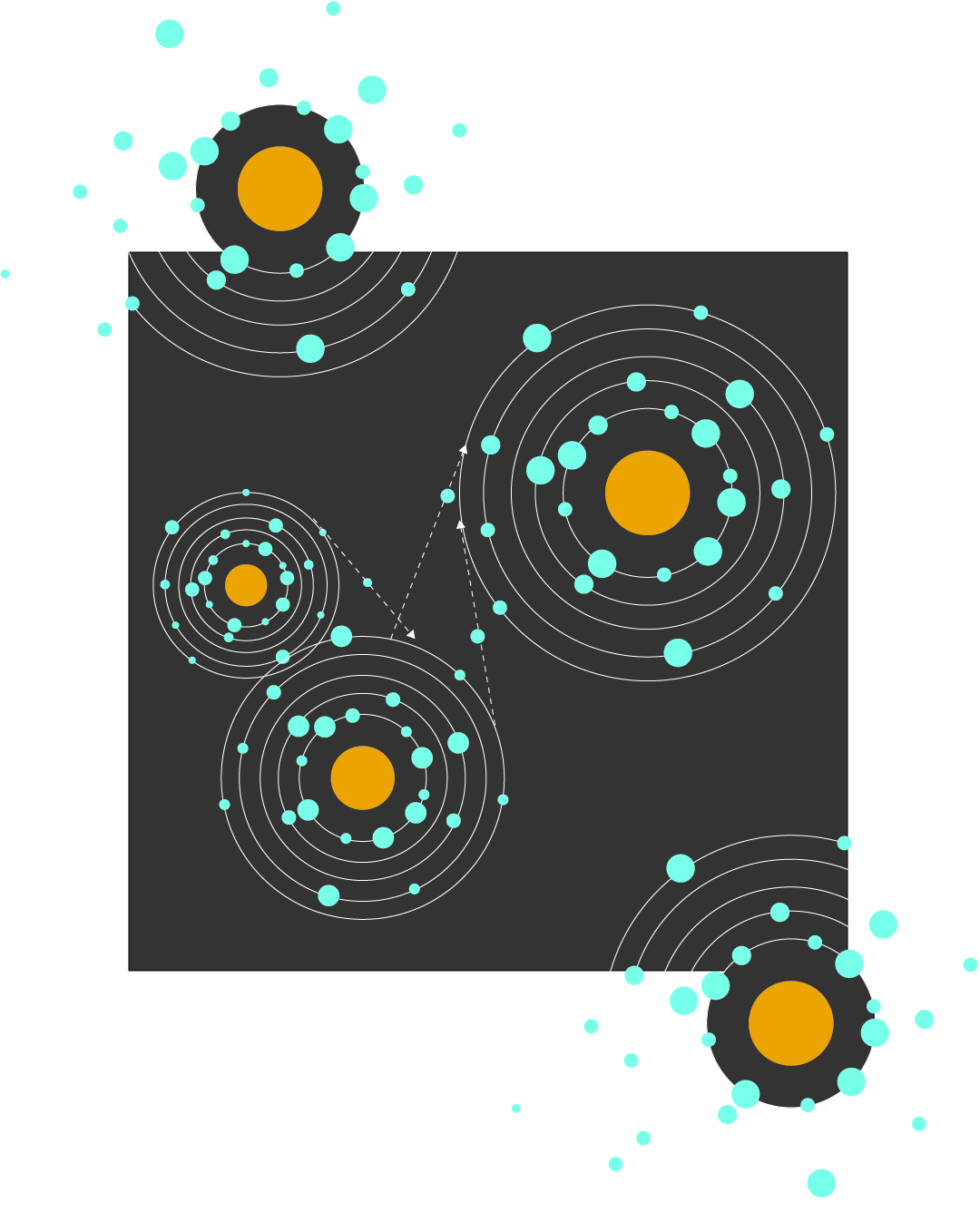cas/definition.php (people or term)

Enslaved States
Emergent states often constrain the agents that initially formed that state.
An enslaved state can persist as an attractor (see Attractor States) within a Fitness Landscape.
The term 'enslavement' was introduced by Hermann Haken, and suggests how particular emergent phenomena reinforce themselves once they have developed. There are similarities between the notion of enslavement and the concept in economic geography of 'lock-in'.
Some enslaved states may represent highly fit situations, whereas others might be residues of states that were fit at one time, but may now be sub-optimal. In this case, the system may suffer from 'lock-in', where it can no longer adapt to shifting fitness parameters because it has become too entrenched in self-reinforcing regimes.
Enslavement captures how emergent phenomena, even though they are generated from the bottom up, take on agency once formed, and thereafter can constrain the actions of the agents that form the system.
Thus, while one state might emerge as more viable than another due to processes that are initially somewhat random, this can be gradually amplified over time due to positive Feedback processes, until such point when actors within the system effectively only have one option of how to act. Accordingly, Hollywood has enslaved the movie industry, and Silicon Valley has enslaved the tech industry. At this point in time, it would take a major system Perturbation to disrupt these patterns.
In Evolutionary Economic Geography the term "lock-in" is used to refer to the same dynamic.
Cite this page:
Wohl, S. (2022, 7 June). Enslaved States. Retrieved from https://kapalicarsi.wittmeyer.io/definition/enslaved-states
Enslaved States was updated June 7th, 2022.
Nothing over here yet
Navigating Complexity © 2015-2025 Sharon Wohl, all rights reserved. Developed by Sean Wittmeyer
Sign In (SSO) | Sign In
Related (this page): Evolutionary Geography (12), Self-Organization (214), Hermann Haken (141), Attractor States (72),
Section: terms
Non-Linearity Related (same section): Related (all): Urban Modeling (11, fields), Resilient Urbanism (14, fields), Relational Geography (19, fields), Landscape Urbanism (15, fields), Evolutionary Geography (12, fields), Communicative Planning (18, fields), Assemblage Geography (20, fields), Tipping Points (218, concepts), Path Dependency (93, concepts), Far From Equilibrium (212, concepts),
Nested Orders Related (same section): Related (all): Urban Modeling (11, fields), Urban Informalities (16, fields), Resilient Urbanism (14, fields), Self-Organized Criticality (64, concepts), Scale-Free (217, concepts), Power Laws (66, concepts),
Emergence Related (same section): Related (all): Urban Modeling (11, fields), Urban Informalities (16, fields), Urban Datascapes (28, fields), Incremental Urbanism (13, fields), Evolutionary Geography (12, fields), Communicative Planning (18, fields), Assemblage Geography (20, fields), Self-Organization (214, concepts), Fitness (59, concepts), Attractor States (72, concepts),
Driving Flows Related (same section): Related (all): Urban Datascapes (28, fields), Tactical Urbanism (17, fields), Relational Geography (19, fields), Parametric Urbanism (10, fields), Landscape Urbanism (15, fields), Evolutionary Geography (12, fields), Communicative Planning (18, fields), Assemblage Geography (20, fields), Open / Dissipative (84, concepts), Networks (75, concepts), Information (73, concepts),
Bottom-up Agents Related (same section): Related (all): Urban Modeling (11, fields), Urban Informalities (16, fields), Resilient Urbanism (14, fields), Parametric Urbanism (10, fields), Incremental Urbanism (13, fields), Evolutionary Geography (12, fields), Communicative Planning (18, fields), Rules (213, concepts), Iterations (56, concepts),
Adaptive Capacity Related (same section): Related (all): Urban Modeling (11, fields), Urban Informalities (16, fields), Tactical Urbanism (17, fields), Parametric Urbanism (10, fields), Landscape Urbanism (15, fields), Incremental Urbanism (13, fields), Evolutionary Geography (12, fields), Feedback (88, concepts), Degrees of Freedom (78, concepts),
